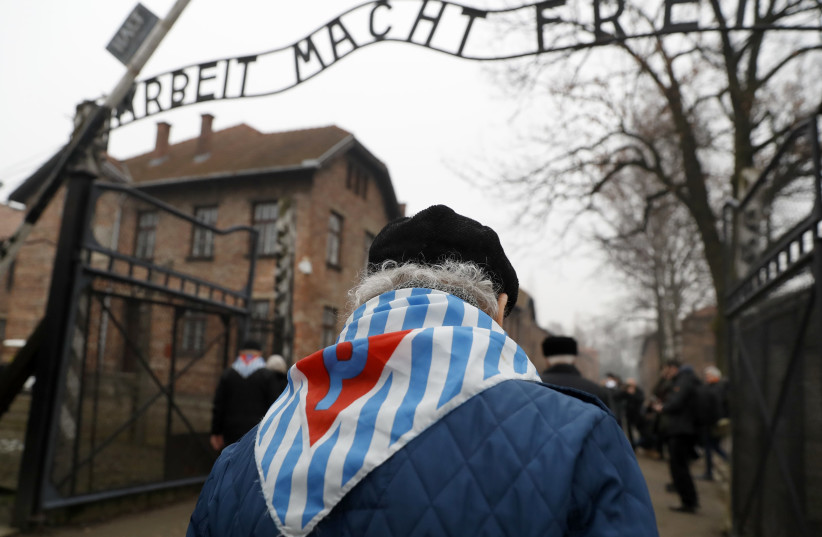WASHINGTON - The Knesset Immigration, Absorption and Diaspora Affairs Committee held a special meeting to mark Holocaust Remembrance Day on Monday, with the participation of representatives of Jewish communities abroad, including the ADL, JFNA, Claims Conference, the Jewish Agency, Keren Hayesod, Yad Vashem, and other groups.
One of the speakers was Shelley Rood Wernick, a granddaughter of survivors and the Managing Director of the Center on Holocaust Survivor Care and Institute on Aging & Trauma at the Jewish Federations of North America (JFNA).
“It was really an honor to speak at the Knesset Committee,” she said. “They wanted to hear from different organizations around the world about what different communities are doing to promote Holocaust education, to remember the Holocaust and also to assist Holocaust survivors.”
“And that is the point in which I focused mostly because that's what Jewish federations do,” Rood Wernick said. “We recognize that Holocaust survivors need help as they age. They've dealt with a lot in their lives. And we want to support them and do all we can to make their lives more comfortable.”
“We recognize that Holocaust survivors need help as they age. They've dealt with a lot in their lives. And we want to support them and do all we can to make their lives more comfortable.”
Shelley Rood Wernick
“I spoke to the committee meeting about different communities across the country, the services that we provide: mental health, cognitive health, physical health, food, and help in the home,” she noted. “And I also spoke about our partnership with the United States government and with dedicated philanthropists and with the United States government. They're investing a lot of money in Jewish federations and the Jewish community in order to help Holocaust survivors.”

Helping Holocaust survivors in the US
Last year, the federal government budgeted a record $8.5 million for its Holocaust Survivor Assistance Program. Jewish Federations are the official body working in partnership with the federal government to implement this program. It is advocating for an increase for funding at the $10 million level in order to meet the needs of our survivor population in the US.
Since the organization launched its Holocaust Survivor Care initiative in 2015 together with government support, Jewish Federations have supported approximately 35,000 Holocaust survivors, 16,000 professional caregivers, 6,000 family caregivers, and 5,000 older adults with a history of trauma.
“Our work focuses on the methodology of providing care to Holocaust survivors in a way that recognizes that trauma has a place in their life and creates services and programs so that Holocaust survivors can access the services despite having overcome trauma," she said. “The focus is on a food program, mental health, transportation, dental appointments, or help connecting with other services, connecting with other government services, food benefits, health care, anything that we can do to help a Holocaust survivor who is in need. And the sad fact is that more than one-third of Holocaust survivors in the United States are living in poverty. And we need to do everything we can to help them.”
She said that there are between 30,000 to 60,000 survivors who live in the United States, but that is an estimate, not an official number. As survivors get older, she said, the services offered are changing as well.
“Dementia care and memory care is very common now as people get older,” said Rood Wernick. “Also, we have to provide a lot of support to family members of Holocaust survivors, to caregivers, friends, family, people who are the support system and some survivors.”
“Many survivors don't actually have a support system, and the professionals and volunteers from the agencies are their only family and are the support system,” she continued. “But we know that family caregivers experience many hardships, financial, social, and emotional. Caregiving can be a very rewarding and loving experience, but it can also be very difficult for the family involved.”
